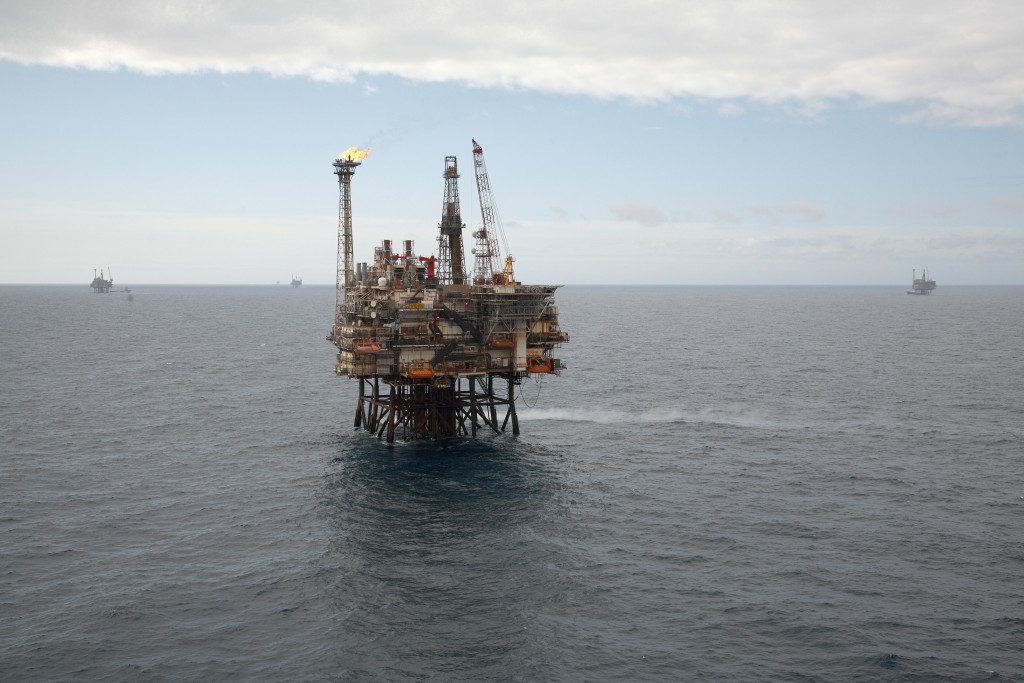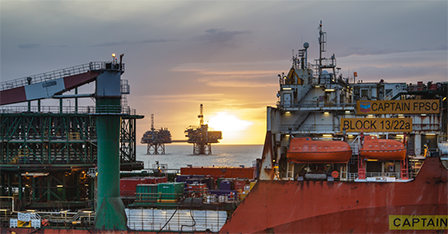
A notice from the Health and Safety Executive (HSE) to North Sea operator Apache has been upheld by an Employment Tribunal after the firm tried to appeal the decision.
The move comes after an employment tribunal was held earlier this year.
A spokesman for Apache has said they are now considering their next move after the decision of the tribunal.
The judgement of the tribunal was to uphold an Inspection Notice (IN) issued in April 2015.
Apache had been issued with the IN from the safety body after a vessel was involved in a collision with the Forties Echo platform.
A total of 15 workers were evacuated from the Forties Echo after the 291ft Sea Falcon crashed into the platform.
Following the incident, the notice instructed Apache to make significant changes to the way it monitors marine traffic within a 1,640ft (500m) radius safety zone of the rig, which is about 110 miles north-east of Aberdeen.
Action was taken after an HSE team found the Forties Echo platform was unaware of the vessel, despite the tribunal hearing it was travelling at speeds of up to eight times the recommended limit.
Apache had insisted it had taken all the appropriate action to reduce risk to its employees and the vessel crew.
The master of the vessel was said to have received distressing family news when the accident happened.
In its findings, the tribunal said: “The unanimous judgement of the employment tribunal is to affirm the Improvement Notice issued by the respondent under the Health & Safety at Work Act 1974 on 10th April 2015.”
The hearing had been held over four days where evidence was held from both sides.
Since 1975, there have been around 500 collisions in the UK sector of the North Sea with 96% involving attendant vessels.
In the Tribunal findings it was also found there have been 14 collisions between vessels and installations since 2012.
The report found there was dispute over a meeting held between the HSE and Apache’s managers on April 10th last year.
In its findings, the report from the Tribunal said it was “not entirely clear” what had taken place.
A summary from the Tribunal said: “In the Tribunal’s view there are a number of compelling reasons for the service of this notice. Any other method does not have the force of law. The issue of
safety offshore is one of considerable importance and public concern.
“The stakes are high in that any collision could be very serious and involve loss of life. There are indications in the evidence that the appellant’s management was not as willing as it might now be suggested to consider further improvements particularly a more active role for those aboard the installation.
“Although revisions were made quickly after the incident we agreed that they failed to deal with the fundamental issue here which is the role of the OIM and the steps that should/could be taken by the installation personnel to monitor what happens in the 500metre zone.
“There was an unresolved question in the sense there is no clear and accepted procedure adopted by others although there was a suggestion of monitoring by deck staff on other installations, but it seems to us that if the various avenues suggested by the inspectors are investigated and found not to be practicable it could only be in those circumstances that the Appellants would be entitled to rely on the statutory defence that they had taken reasonable practical steps.”
David Walker, HSE’s Energy division investigation manager said: “Our UKCS regulatory regime requires oil companies such as Apache to control the risks that their activities create so that people and environment are not harmed.
“In this case Apache were not managing the risks arising from attendant vessel operations and we know from previous catastrophic incidents in other parts of the world that the risk of fire and/or explosion from ship collision is very real. In situations like this, where there is a risk gap, we use our regulatory powers to ensure the workforce and environment is suitably protected.
“The movement of large vessels weighing thousands of tonnes close to an offshore installation must be properly controlled if a catastrophe is to be avoided. We are pleased the Tribunal agreed and unanimously affirmed the Improvement Notice and in doing so signalled that HSE’s action was appropriate.”
